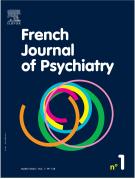Revisiting baclofen in the treatment of alcoholism: just a question of enantiomer? - 29/05/20
Résumé |
The benefit-risk balance of the GABA (α-aminobutyric acid)-B receptor agonist baclofen in the treatment of alcohol addiction is still controversial not only because the efficacy has not been clearly demonstrated but also because of the recent safety concern. Most of the preclinical and clinical studies used the racemic baclofen [RS(±)-baclofen], however, recent data showed that the effect of baclofen on alcohol intake may be enantiomer dependent. Here we used the gold standard animal model of alcohol dependence with the aim of analyzing the effects of the RS-baclofen and its enantiomers, R-baclofen and S-baclofen, on different alcohol-related behaviors.
We showed that:
– R-Bac was more effective than RS-Bac in suppressing alcohol intake, while S-Bac failed to affect alcohol consumption.
– The effects of R-Bac and RS-Bac (1.5 and 2 mg/kg, respectively) on alcohol intake were not explained by any motor impairment.
– Some animals (around 27%) were less sensitive to the effects of R-Bac (1.5 mg/kg). Also, there was a negative correlation between the efficacy of this dose and the motivation for alcohol.
– R-Bac (1 mg/kg, IP) suppressed intake for both nondependent and dependent animals. However, the sensitivity to this dose was reduced in dependent rats.
In conclusion, our results suggest that R-Bac could be a potentially more effective medication than RS-Bac in the treatment of alcohol dependence, and actually our studies are focused on the individual variability in sensitivity to blaclofen.
Le texte complet de cet article est disponible en PDF.Keywords : Alcohol, Addiction, Baclofen, Enantiomer, GABA, Pharmacotherapy
Vol 1 - N° S
P. S127-S128 - novembre 2018 Retour au numéroBienvenue sur EM-consulte, la référence des professionnels de santé.
L’accès au texte intégral de cet article nécessite un abonnement.
Déjà abonné à cette revue ?


